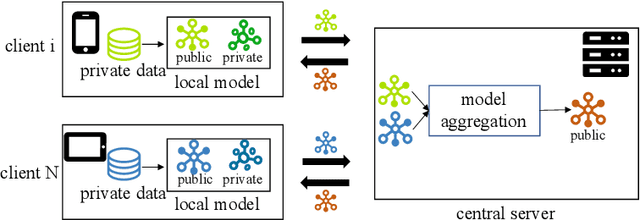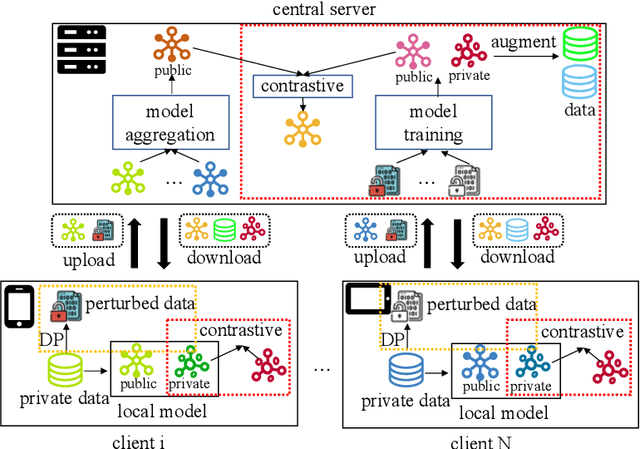PDC-FRS: Privacy-preserving Data Contribution for Federated Recommender System
Paper and Code
Sep 12, 2024



Federated recommender systems (FedRecs) have emerged as a popular research direction for protecting users' privacy in on-device recommendations. In FedRecs, users keep their data locally and only contribute their local collaborative information by uploading model parameters to a central server. While this rigid framework protects users' raw data during training, it severely compromises the recommendation model's performance due to the following reasons: (1) Due to the power law distribution nature of user behavior data, individual users have few data points to train a recommendation model, resulting in uploaded model updates that may be far from optimal; (2) As each user's uploaded parameters are learned from local data, which lacks global collaborative information, relying solely on parameter aggregation methods such as FedAvg to fuse global collaborative information may be suboptimal. To bridge this performance gap, we propose a novel federated recommendation framework, PDC-FRS. Specifically, we design a privacy-preserving data contribution mechanism that allows users to share their data with a differential privacy guarantee. Based on the shared but perturbed data, an auxiliary model is trained in parallel with the original federated recommendation process. This auxiliary model enhances FedRec by augmenting each user's local dataset and integrating global collaborative information. To demonstrate the effectiveness of PDC-FRS, we conduct extensive experiments on two widely used recommendation datasets. The empirical results showcase the superiority of PDC-FRS compared to baseline methods.
 Add to Chrome
Add to Chrome Add to Firefox
Add to Firefox Add to Edge
Add to Edge